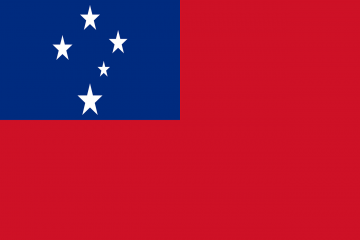With support from our global network of higher education partners, the Open Education Resource universitas (OERu) is facilitating access to open, online micro-courses for anyone with access to the Internet. OERu provides affordable pathways for learners to earn micro-credentials and associated academic credit towards globally recognised qualifications. A number of leading ICDE member organisations are helping to shape the success of the OERu – a designated project of the UNESCO-ICDE OER Chair network.
Open courses for sustainable operations
The OERu is distinctively open. Using transparent and open planning approaches our innovation partnership:
- publishes open online courses which learners can study without the need to register a password to gain access to the materials;
- ensures that courses are based entirely on OER and open access resources so learners do not need to purchase any prescribed learning materials;
- develops and delivers courses using free and open source software technologies with technical recipes for any institution wishing to replicate our technology infrastructure, including hosting local versions of the published courses.
How does the OERu network sustain operations while giving courses away for free without compromising fiscal viability of our partner institutions?
The OERu network has developed an open business model which generates a sustainable income stream to cover the operational costs of assessment. The costs for hosting OERu courses are covered by a nominal membership fee from OERu partners. OERu partners derive institutional value for their membership: by reaching a global audience, raising brand awareness, increasing access to more diverse markets, influencing OERu planning, and better achieving community service goals. A key feature of the OERu network model is the ability to gain access to world-class expertise in open source, cloud based technologies for cooperative design, development and delivery of open courses.

Slow innovation – Building component parts for new accreditation systems
In business, innovation initiatives can usually be classified into two types of projects: large scale efforts to launch new products or business models, or swift developments like rapid prototyping or hackathons. Ford and Tarditi (2017) identify a third approach called “slow innovation” that is gradual and smaller in scale.
Slow innovation builds on the work of McCracken (2011) which distinguishes between “fast culture” and “slow culture”. Fast culture is associated with trendspotters who monitor social data to achieve a rapid response to an emerging trend. Conversely, slow culture or slow innovation is more aligned with pattern recognition, which observes trends that are occurring beyond the horizon to which organisations are not able to transform immediately. Slow innovation requires a long term view, building on persistent planning to ensure that component processes are in place when transformation eventually happens. Slow innovation is harder to implement because existing organisational budgets and key performance indicators are not aligned with the emergent patterns. Slow innovators need to function within lean budgets, working with prototypes which are small enough to fail affordably, but when successful are significant enough to encourage and support organisational development.
The OERu’s progress with micro-credentials is partly a function of the slow innovation model. The network first discussed the concept of micro-courses at the 2nd international meeting of OERu Partners in October, 2013. Drawing on empirical data from our prototype micro- courses, partners noted the value of small “modules” to maintain student engagement. Completion rates compared favourably to attrition rates of other open online courses, which tended to increase significantly in cohort-based courses of longer than three or four weeks’ duration. In addition, the partners acknowledged that it would be hard to convert open badges earned through informal learning into transcript credit for formal academic courses.
During the 4th international meeting of OERu partners there was a prolonged discussion expressing concerns that micro-credentials would not integrate into the formal accreditation processes. However, the OERu persisted in assembling its online courses as micro-courses equating to 40 – 50 notional learning hours as a mechanism to deal with different course sizes in different parts of the world. So for example, a traditional 3 credit course in North America was assembled from 3 micro-courses, whereas in Australia a standard university course would constitute 4 micro-courses.
Launching OERu micro-credentials
The OERu has recently partnered with Edubits a micro-credentialing initiative led by Otago Polytechnic in New Zealand. The OERu will be launching 26 micro-courses in business studies, which will offer digital certification for assessed learning. Each of the micro-courses has been approved by the Academic Board at Otago Polytechnic so that transcript credit for the associated full courses can be issued once learners have successfully completed the corresponding set of three or four micro-courses. The transcript credit will be recognised towards the Certificate of Higher Education, one of the designated qualifications for the OERu 1st Year of Study through our transnational credit transfer model.
The OERu partnership with Edubits forms part of a national pilot recently announced by the New Zealand Minister of Tertiary Education, Skills, and Employment.
From vision to reality
The OERu’s slow innovation model combined with rigorous planning is now turning the OERu ambitious vision of using OER for more affordable education into reality. The OERu innovation partnership demonstrates that what is difficult for institutions to achieve individually becomes possible through active participation in the OERu network.
References
- Ford, S., & Tarditi, F. R. (2017, June 26). The Benefits of Taking a Slower Approach to Innovation. Harvard Business Review.
- McCracken, G. (2011). Chief Culture Officer: How to Create a Living, Breathing Corporation (1 edition). New York, NY: Basic Books.
Credits
This announcement is adapted from a blog post prepared for the International Council for Open and Distance Education, published on 6 September 2017.

